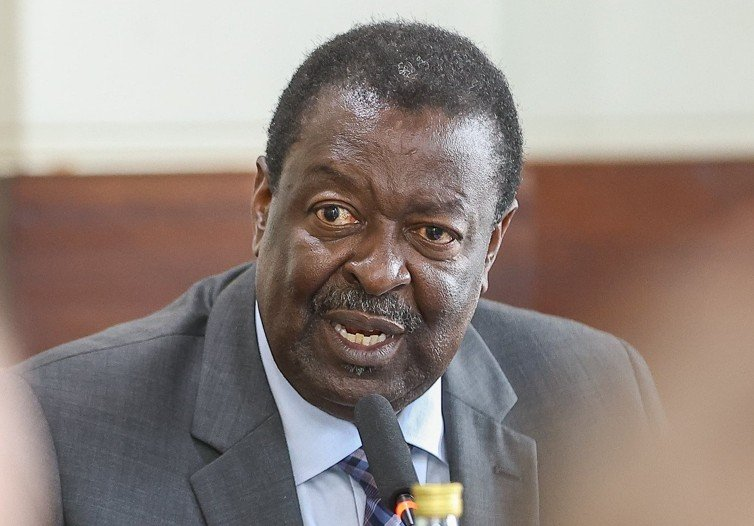Prime Cabinet Secretary Musalia Mudavadi has disclosed the alarming murder of 100 women in Kenya between August and November 2024, painting a grim picture of femicide in the country.
As Acting Interior Cabinet Secretary, Mr Mudavadi described femicide as “the elephant in the room in the security sector” and stressed the urgent need for action.
He revealed that investigations into these cases by the Directorate of Criminal Investigations (DCI) are largely complete, with many now in court. A specialised police unit has been established to tackle femicide directly.
“There are 100 murders of women from August to November 2024. So far, DCI has completed investigations on these and the majority are pending before court. The Police IG has formed a specialised unit to deal with femicide,” he said.
“The country has recorded a total of 7,107 sexual and gender-based violence cases from September 2023 to date. Nairobi recorded the highest number of incidents while Samburu and Mandera had the lowest,” he added.

The worsening trend of femicide in Kenya reflects a broader crisis of gender-based violence. A 2020 World Health Organisation report revealed that Kenya has one of Africa’s highest femicide rates, with an estimated 47 women killed every week. Cultural and social barriers often prevent these crimes from being reported, complicating efforts to address the issue.
In response, Kenya’s Cabinet on Tuesday, August 17, approved the creation of a presidential working group to propose strategies for combating femicide. The team, working with stakeholders such as religious leaders, schools, and law enforcement, will deliver recommendations within 90 days.
This decision follows public outcry over systemic failures and police actions during recent protests against femicide. On International Human Rights Day, peaceful demonstrators in Nairobi faced excessive force from police, prompting criticism from human rights groups.
While some officers involved have been transferred, rights organisations demand accountability and deeper reforms within the National Police Service. They have committed to working with authorities to safeguard constitutional rights, including peaceful assembly and human rights protection.


